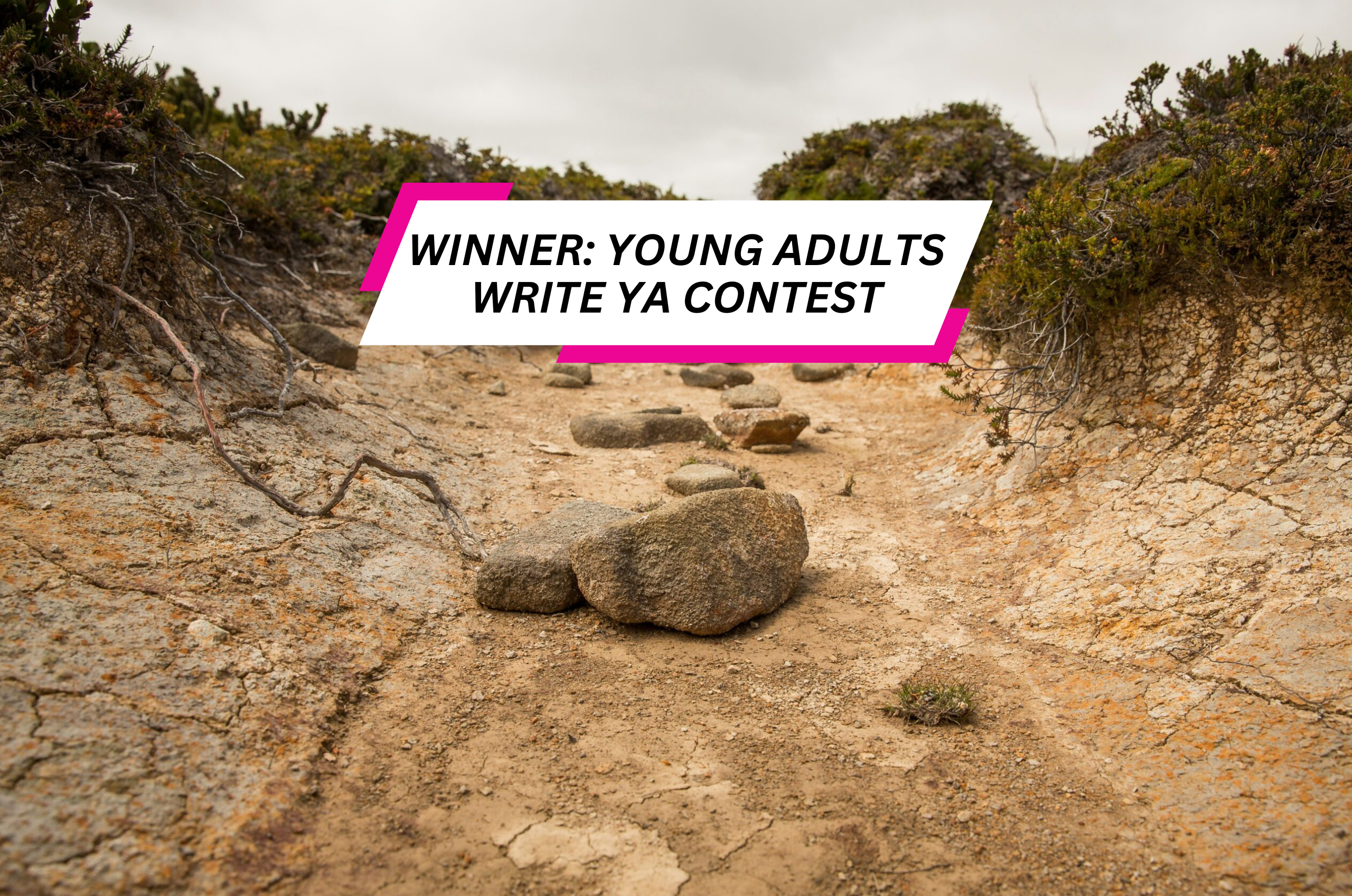“Tears Like Summer Rain” by Rose Rasor is the first place winner of the Young Adults Write YA Contest hosted by Voyage YA by Uncharted and guest judged by Theodora Goss.
XXX
“Tears Like Summer Rain” by Rose Rasor is a beautiful story—thematically, stylistically, and in terms of its structure. It reminds me of a basket woven from two different kinds of wood, such as maple strips interwoven with willow branches. The maple strips are the protagonist Larissa’s search for her “knack,” the talent that inhabitants of her town all have. Not having a knack means not being useful to her community, not fitting into the place where she was born and wants to belong. The willow branches are her feelings about her best friend Mabel, which twine in and out of Larissa’s search for what will make her both special and a participant in the life of the town. Both strands of the story come together to pose a fundamental question: who is Larissa and what will she become? The basket Rose weaves is strong, solid, and well-structured: it feels as though it could hold water. But, to leave the basket analogy, the story is also written in precise, lyrical prose that is a pleasure to read. This is a truly lovely narrative. —Theodora Goss
XXX
The creek out back dried up the summer Larissa turned sixteen.
It didn’t happen all at once, of course. The spring thaw came as usual to Sycamore Ridge, dirt streets churned up beneath wagon wheels and snow giving way to green new growth shouldering its way through the damp earth. It was only later, when once-muddy streets dried into dust that hung shimmering in the summer heat and coated everything in grime, when the grass was brittle and yellow from lack of water and the sky stayed a blazing, empty blue that old Pat Creery at the general store started to suck his teeth and utter the one word no one wanted to hear.
Drought.
Back in May of 1904, though, when all anyone had to say was that this particular upstate New York spring had involved less escaping drizzle and dodging mud puddles than usual, Larissa Bailey had plenty of other things to worry about besides the rain.
The first was that her best friend Mabel had become utterly unbearable since Josiah Bowen had asked her to be his girl. Now Mabel spent half her time hanging off of Josiah’s arm and the other half mooning about him to Larissa. She never wanted to trap crayfish in the creek or go swimming in the old quarry anymore. It was all Josiah this, Josiah that, I wonder if Josiah will invite me to the summer dance and what kind of flower do you think would look best for his corsage?
“Stinging nettle,” said Larissa, who wanted the old Mabel back. The Mabel who would throw rocks at her window on a summer night so they could sneak out to watch meteors hurtle across the sky, the Mabel who would help her name the barn kittens every spring, the Mabel who’d spend hours picking through blackberry thickets without a care for her tangled hair or scratched shins.
Mabel had flounced off in a huff at that and had stopped coming by the Bailey farm.
The second thing on Larissa’s mind that spring was that she was almost sixteen and hadn’t shown a knack for anything.
In Sycamore Ridge, most people had a knack for something. Larissa’s mother could calm even the wildest horse with an outstretched hand and a single soothing word while her father could cleanse any stain or stitch any tear as if it had never been there to begin with, the cloth as good as new.
Mabel’s knack had manifested when she was twelve. She’d come running through the back gate of the Bailey farm and dragged Larissa by the hand out of the kitchen to a crumbling old stump in the woods.
“Look,” she’d said, pushing back the weeds clustered around its roots to show tiny strawberries, no larger than a thumbnail, cradled in the tangle of green. Mabel had plucked them out from their resting place and held them out on her flat palm towards Larissa.
“Look,” she’d said again, and the contents of her hands had bloomed into full-size berries, lush and red and big as the space made by the meeting of a thumb and a pointer finger. Ever since then, Mabel had been the one to ask to find the raspberry thickets or to ripen the elderberries for jam.
Larissa, however, was almost sixteen and had so far shown a knack for nothing in particular. She couldn’t instinctually sense when it was time to seed or harvest the corn like her oldest brother, Caleb, couldn’t catch fish with her bare hands like Alice Hallum down the road, couldn’t call down the crows and magpies with their shiny troves of treasure like Mabel’s uncle. The butter she churned was a product of nothing more than hard work, flowers in water didn’t bloom an extra week if it was her hands that cut them, and chickens laid no more eggs than usual when it was her turn to collect.
At fifteen-and-three quarters, Larissa knew that her time was running out to manifest a knack for anything. Sometimes that happened in the families of Sycamore Ridge, a withered branch on an otherwise lush tree. At sixteen, the oldest Abernathy boy had shown a knack for nothing more than schoolwork, so he’d gone off to be a librarian down in Buffalo and every so often sent his family neatly-typed letters on crisp white paper about his life of alphabetized shelves and reference desks.
She’d already heard some whispers about her lack of a knack—poor girl, the Bailey family had run strong with the knack for five generations at least, but there was always a first for everything—which is why when Henry Hallum leaned over in line at the general store and asked if she’d manifested a knack yet, she’d turned and snapped “None of your business!” without a moment’s pause.
“Sorry,” Henry said, shrinking back. “I only wondered because… I thought I might help?”
Larissa squinted at him, looking him up and down. The Hallum family lived down the road, but she didn’t know Henry all that well. He had a round face framed by blond curls, wide blue eyes, and skin that burnt at the first whisper of sunlight. Mabel had been sweet on him for six months when they were thirteen, which Larissa had never understood. He had the look of something you’d put on a mantelpiece. Still, there was something guileless and open about his expression, like his offer was genuine.
“I can find things,” he said. “I’ve got a knack for it, that is. I thought… maybe I could help you find yours?”
“Oh,” Larissa said, reconsidering. Her family had said nothing about her so-far nonexistent knack, other than a slightly desperate edge to her mother’s voice when she’d asked who Larissa might like to invite to her sixteenth birthday, like if they didn’t acknowledge it, something would happen in the next two months so they never had to at all. “All right. What were you thinking of?”
“I have some ideas,” Henry said. “Meet me in the park after dinner and I can show you my list.”
Henry’s list, as it turned out, was three formerly-blank pages torn out of the back of an almanac detailing almost every knack he could think of. “I thought we could… test them?” he suggested as Larissa pored over his scribblings.
“You’ve got a knack for finding things, then?” she asked, looking up. Last she’d heard, Henry hadn’t manifested a knack for anything, either.
“It’s new,” Henry explained. “I found my mother’s wedding ring in the garden when she lost it weeding and then Davey Boone’s glasses when he jumped into the quarry wearing them. People, too, like when Patience Quigg was lost playing in the woods.”
Hope rushed through Larissa and she swallowed hard, trying not to seem desperate. “Fine, then. Might as well try.”
With two months until Larissa’s sixteenth birthday, Henry figured they should get cracking. Lunchtime they devoted to categorizing knacks and conjuring up trials for them, the afternoons when chores were done to test them. Henry kept a tally in his sheath of loose papers while Larissa tried to call down birds to her open, inviting palm or waved a dowsing rod across the ground in search of hidden water.
“I think we’re really getting there,” Henry said one afternoon as they paused their testing to search out just-ripened blackberries along the creek.
They’d come to the creek to see if she could summon fish into her waiting hands, but the water levels were too low to test. The snowmelt from the spring was long gone by early July, the creek reduced to a muddy trickle. Mossy rocks usually submerged now poked their heads out of the weak current, strands of riverweed and crackles of mud dried atop them.
“Really?” Larissa said doubtfully. She’d seen Henry’s papers and they were a litany of failures, crossed-out trials and disproven hypotheses.
“It only takes one!” Henry said, popping a handful of berries into his mouth.
“I guess,” Larissa said. She nibbled on one of the blackberries, but they were tart and shriveled, more seed than flesh.
If Mabel was here, she could have ripened the berries into bundles of sweet black flesh, overflowing with juice.
“Listen,” Henry said. “With every knack you don’t show an affinity for, we get closer to finding what you do have a knack for.”
“How does it feel?” Larissa asked, dropping the sour berries to the ground. “When you find something, I mean?”
Henry looked thoughtful, then spoke. “It’s an instinct, I suppose. Something inside me just knows to open that drawer and look inside or reach my hand into the mud of the quarry bottom for some lost glasses. When my mother asked if I’d seen her wedding ring, the first time I used my knack, I felt more sure I could find it than I’ve felt about anything before.”
“And do you feel like that now?” Larissa held her breath, waiting for his answer. Waiting for him to say he felt something just out of reach, that they only had to keep looking.
“Well… no,” Henry admitted. Her face must have fallen, because he rushed to add “But I think it’s because we don’t know exactly what we’re looking for. It’s not like a lost pair of scissors. Or…” he trailed off.
“Or?” Larissa prompted.
“I can only find lost things,” he clarified. “Not hidden things. When Charity Quigg asked me to find Patience, I couldn’t find her at first and thought my knack must have been broken. But Patience had been hiding in a hollow tree for a game of hide-and-seek at first, and it was only when she left and tried to find her way home that she was properly lost and I could find her. Maybe knacks are the same—not lost, just hidden.”
“Oh,” Larissa said. Was it all for nothing, then—Henry’s careful list, the afternoons spent testing knacks?
“We’ll find your knack, I promise,” Henry said, laying a hand on her shoulder. His face was unbearably earnest, his hand heavy.
“I need to go home,” Larissa blurted out, letting the rest of the blackberries fall from her palm.
He blinked at her in disappointment. “Really? I thought we might have time for one more test before dinner.”
“My mother needs me back early,” Larissa lied, and made her way back along the bank before Henry could say anything else.
She didn’t have anywhere else to be, so Larissa went back home.
As she rounded the corner of the Bailey house, Larissa saw Mabel standing by the front door.
“Oh. Hello,” Larissa said, keenly aware that she was muddy and bedraggled from her fish-catching attempts, hair falling in tangles around her face and the knees over her overalls stained from kneeling on the damp creek bank.
Mabel’s sleek, black hair was tied back neatly from her face with a silk ribbon. She was the youngest Irwin child and the only daughter, so her parents spoiled her—dresses ordered from glossy fashion magazines, the newest hair ribbons from the general store’s stock. This ribbon was a deep green and brought out flecks of the same in Mabel’s eyes, like the deepest hollows in the forest.
“I have jam,” Mabel said, holding up the jar of blackberry jam cradled in her arms. “For your mother.”
“Oh. Thank you, that’s very thoughtful.” Larissa leaned against the porch railing. The summer sun had brought out a band of freckles across Mabel’s nose since Larissa had last seen her. “How… how have you been?”
“Good,” said Mabel. “Berries have been scarce this summer, but I’ve been making do.”
The way Mabel said it was perfectly polite, but with none of the familiarity Larissa was used to—like they were acquaintances making small talk in line at the general store and not two girls who’d grown up side-by-side. And maybe it was all Larissa’s fault. Maybe it would be better to have the dreamy Mabel who wouldn’t stop chattering about Josiah than this.
“I’m sorry,” Larissa said after a moment. “About what I said about Josiah. I’m sure he’s very nice.” The words came out flat, but Mabel still smiled.
“He is,” Mabel said. “Though it turned out he forgot to mention he was allergic to calla lilies and spent the whole dance sneezing.”
“Probably better than stinging nettles,” Larissa said, relaxing somewhat.
“So…” Mabel said slyly after a second. “Henry Hallum’s sweet on you, isn’t he?”
“What? No!” Larissa blurted out. Henry… sweet on her? Absolutely not.
Mabel rolled her eyes. “Really, Larissa? You haven’t noticed the way he looks at you or how you’re suddenly spending all your time together?”
“He looks at me like a friend,” Larissa said stiffly, crossing her arms. “And he’s just helping me find my knack.”
“Hm.” Mabel didn’t sound convinced. “And have you?”
“No, but I think we’re getting close,” Larissa said, and began explaining the trials Henry had been putting her through.
Mabel left soon after with an excuse that she had to help her mother with the rest of the jam. Larissa took the jar of blackberry jam to the kitchen, holding it for a long moment. The glass was warm against her skin and she knew it must have been from the summer sun, but she imagined it was a lingering trace of Mabel instead.
Her mother had baked a fresh loaf of bread that morning and Larissa cut a slice off and slathered it with the jam. It was the sweetest thing she had tasted all summer and she savored it, wishing she had asked Mabel to stay. They could pore over glossy catalogs of fabric and ribbons, hunt for wildflowers that had survived the scorching weather and weave them into crowns, dabble their feet in the shallow creek. They could be Mabel-and-Larissa again, and Larissa let the fantasies sweep away all thoughts of Mabel’s earlier comment about Henry.
That is, until a week later when she was standing with Henry out by Marisol Zambrano’s beehives to test if she had an affinity for the humming swarms of honeybees, when Henry turned to her and asked “Your birthday is in two weeks, isn’t it?”
“Yes,” said Larissa, warily eyeing the bees, which so far had kept their distance. Summer heat had clamped a dry fist around the world and the bees ducked and dove around the brittle grass field in search of clover blossoms. “August third.” Henry knew that—it was written on the top of his paper notes, underlined twice, so she didn’t know why he was asking. He also knew that her parents hadn’t mentioned even the slightest preparations for it.
Sixteenth birthdays were important in Sycamore Ridge, a coming of age and a celebration of your knack all in one. But if Larissa turned sixteen without manifesting a knack, there’d be nothing to celebrate. Just a dead end.
“Do you think…” he said, and there was something in his voice that made her turn away from the bees to see that his eyes were shyly cast downwards. “Do you think you’d like to go out dancing on your birthday?”
He looked up, meeting her gaze, and all Larissa could think was Mabel was right.
Henry, who had taken time out of his day every day for the past two months to try and seek out her knack when everyone around her had silently given up. Henry, with his stack of notes and relentless hope. Henry, with his big blue eyes, wide open and waiting for an answer.
“I…” she said, unsure where her mouth was guiding her. “Of course, Henry.”
The words didn’t taste right in her mouth, like raspberries a week from ripening.
“We should leave this field before the bees get any closer.” Larissa nodded towards a tide of bees buzzing ever-nearer. “I think we can rule out a knack for bees,” she said, and then they were running through the field, mesh veils tangled around their faces and the summer sun beating down relentlessly.
At dinner, Larissa’s family ate in silence. Her father’s brow was furrowed, lost in some internal worry, and her mother doled out meatloaf and potatoes without a word.
“The summer harvest’s not doing well,” her oldest brother Caleb said after a long minute. “I can sense it.”
Her father sighed. “It’s this weather. Two and a half months and not a drop of rain.”
Larissa thought of the low creek out back and the bitter blackberries growing along its fields, of the dusty country roads and the dry fields. Of the cloudless blue skies they’d had all summer and the way the heat clung even after the sun went down.
“Charlie Irwin is coming round tomorrow to see if he can help us out,” Caleb said. Mabel’s brother had a knack for finding water underground. He’d placed the new well on the Bailey farm a few years back.
“That’s good,” her father said, and then the dinner descended back into silence.
After the dinner dishes were done, Larissa stole outside to the creek. Cicadas thrummed in the trees, dusk slipping over the fields and farmhouse.
Out at the creek, she slipped her shoes off, intending to cool herself in the water, but her feet met only mud. In the dim light, she saw the creek bed had dried up since she’d last been down there with Henry, only pools of dampness left between the rocks. The whole place smelled of hot mud and riverweed baked in the sun.
Larissa climbed back up the bank. Out of habit, she checked the blackberry bushes, but their contents had shriveled into hard knots of seed.
The next morning, Charlie Irwin came by the farm and brought Mabel with him.
“He thought that maybe with my berry knack, I could try something on the corn,” Mabel explained sheepishly to Larissa. They both knew that wasn’t how Mabel’s knack worked, just like how they knew it wasn’t a well-finder they needed to save the summer harvest. Sycamore Ridge needed a rainmaker, but there hadn’t been a rainmaker in town since before Larissa was born.
Charlie and Mabel spent the day poking around the farm fields, but the sky remained no less empty of clouds. Larissa hauled buckets of water from the well to water the vegetable garden, which was becoming limp and yellow under the blazing sun. The Irwin siblings stayed for dinner, which was disheartened and quiet.
“The creek’s all dried up,” Larissa told Mabel as they cleared the table. “There are still blackberries growing out back, though.”
Mabel optimistically grabbed a basket and followed Larissa out to the creek. She sifted through the blackberry thickets, emerging with a handful of desiccated berries that plumped in her hands. She offered one to Larissa, who popped it into her mouth, tart and gone in a swallow.
“Henry Hallum invited me to go out dancing on my birthday,” Larissa said at last, desperate to fend off the heat-weary silence that had descended over Sycamore Ridge.
Mabel jabbed a finger in the air triumphantly. “I knew it!”
“We still haven’t found my knack yet, though,” Larissa said, changing the topic. Nerves twisted in her stomach anytime she thought about going out dancing with Henry, of putting on her nice dress and trying to remember where to put her feet.
Mabel bit her lip. “Have you considered that… you might not have one to find?”
“If anyone can find it, he can.” Larissa’s voice sounded tight and defensive even to her own ears.
“I just…” Mabel’s voice grew soft. The sun was going down and the evening light filtered through the trees, gilding her black hair and lighting up the freckles on her nose. “I want you to be happy with Henry. I think he could be good for you.”
“I don’t want to be happy with Henry,” Larissa said before she could stop herself. Because that was the truth, wasn’t it? She liked Henry, liked his hope and help, but she didn’t want to sway in his arms during a slow dance. “I want…” The sentence died in her throat, unsure of how to end it.
And then she knew.
It came from inside some deep, hidden place within her ribcage. It was a thunderstorm sweeping in, the clouds cracking open with a flash of lightning. It was a sky dragged low and gray by its watery weight finally unleashing a torrent of rain. It was a summer sun shower pouring across the landscape in a veil of gold.
“I want you,” Larissa said quietly.
Mabel said nothing for a long, long moment, cicadas screaming in the dusk and Larissa’s heart in her throat. “I don’t understand,” she said.
“I know,” said Larissa, because she was supposed to go dancing with Henry on her birthday and tell Mabel all about it afterwards, giggling and gleeful. She was not supposed to feel a wrongness in her stomach at the idea of Henry’s hands on her waist and his breath on her cheek. She was not supposed to be jealous when she saw Josiah take Mabel’s hand and thread his fingers through hers, as easy as breathing. She was not supposed to imagine Mabel’s hands on her waist or Mabel’s hand in hers or Mabel’s breath on her cheek, but she did, she did, she did.
And even in Sycamore Ridge, who had heard of such a thing as that?
“I know you don’t understand,” Larissa said again. “But I do.” She knew it with the sudden clarity of fumbling in the dark for a match and finally striking one alight, the single revelation illuminating what she had ignored before. Even if she closed her eyes against it, the afterimage of brightness would still be there.
“I don’t love you like that,” Mabel said at last. To hear it said out loud hurt, even if she had known it before Mabel even opened her mouth.
Maybe somewhere downstate—in Albany or Buffalo or the big city with its bright lights and crowded streets—there was somewhere two girls could go dancing, could put their hands on each other and sway to the music. But not here, not now, and not with Mabel.
“I know,” Larissa said. Her throat felt thick and clogged and she swallowed without relief. Heat pricked in her eyes. “It doesn’t—it doesn’t change how I feel.”
The rejection hurt, because how could it not, but there was still some relief in her tears—in the knowing, the naming, the illumination of what had been so dark and hidden before.
“I love Josiah,” Mabel said. And then, softly: “I’m sorry.” Larissa didn’t know if she was apologizing or offering condolences. Either way she knew they would never be Mabel-and-Larissa again, that the years of closeness between them was over now, that this moment would always be between them, unspoken.
“I should be heading home,” Mabel said eventually. She gathered her basket of berries and left Larissa by the dry creek bed. Larissa watched Mabel go until she rounded the corner of the Bailey farmhouse, lost to sight.
She sat by the creek as the sun slipped even further down the horizon. She felt the evening chill come on, grass cooling beneath her legs, and beyond that, with some distant sixth sense, the storm clouds gathering and towering across the darkened sky, just another thing locked within her and now released.
When the tears finally came, so did the rain, and she lifted her face to the sky until she could not tell if the wetness on her cheeks was salt or storm.




